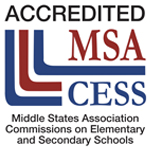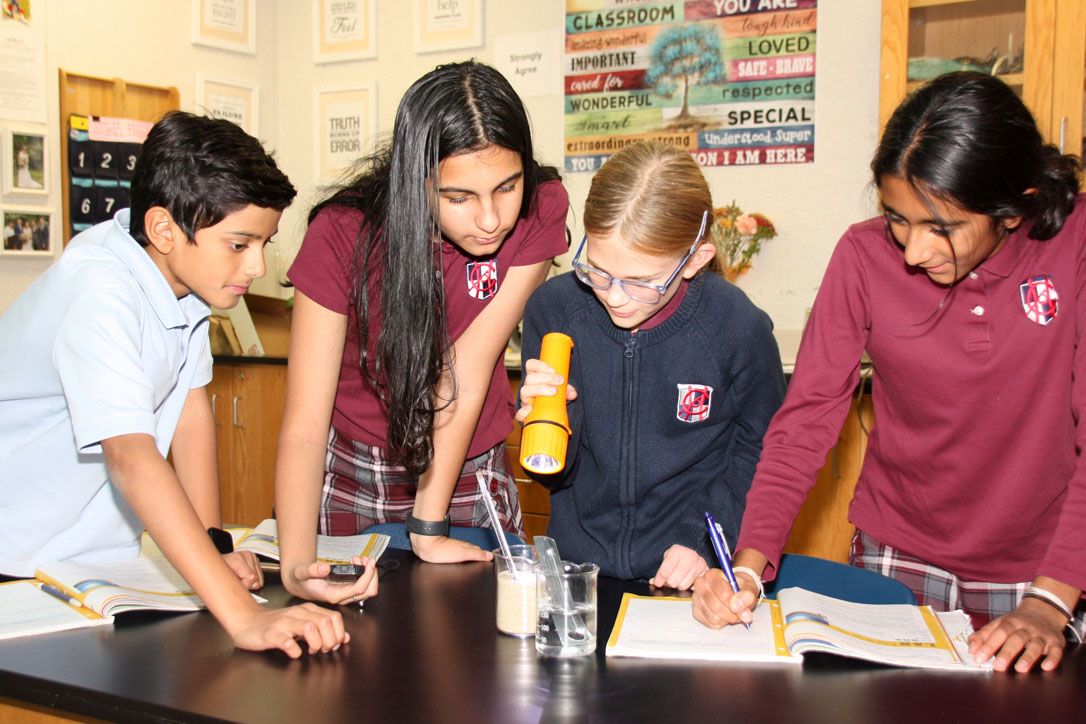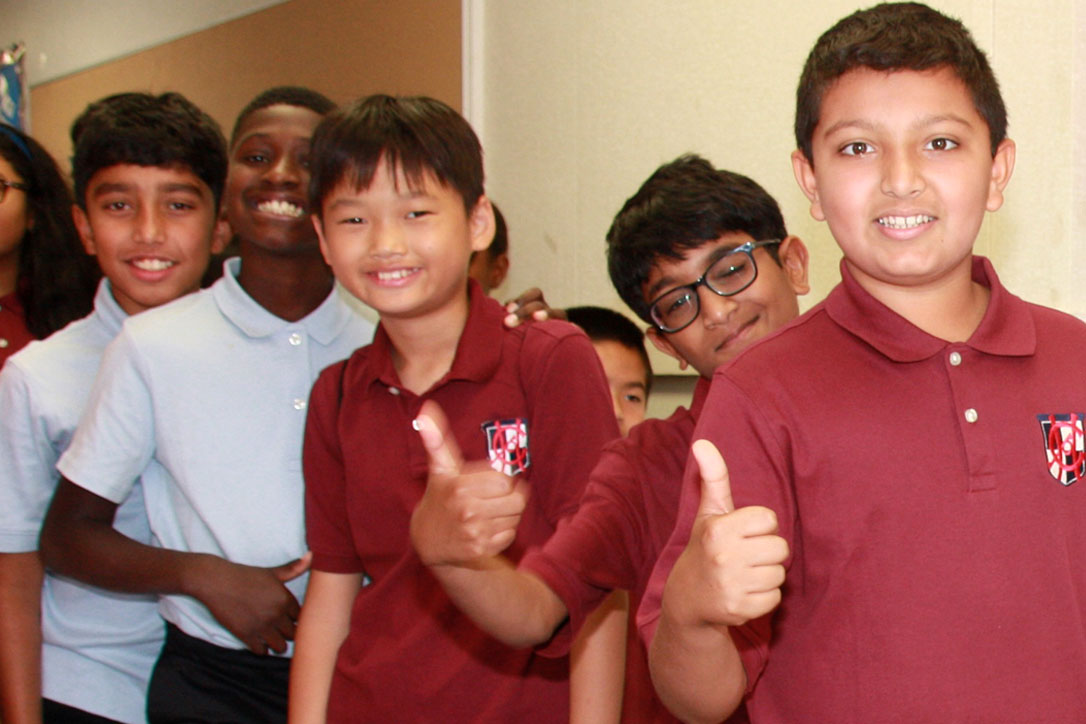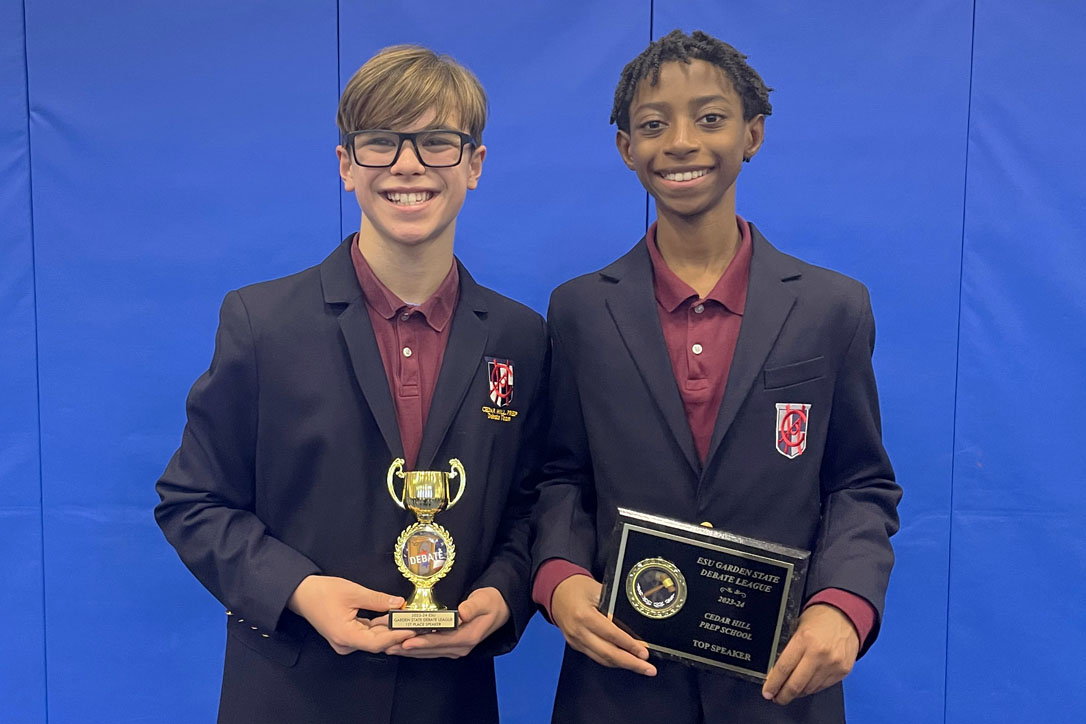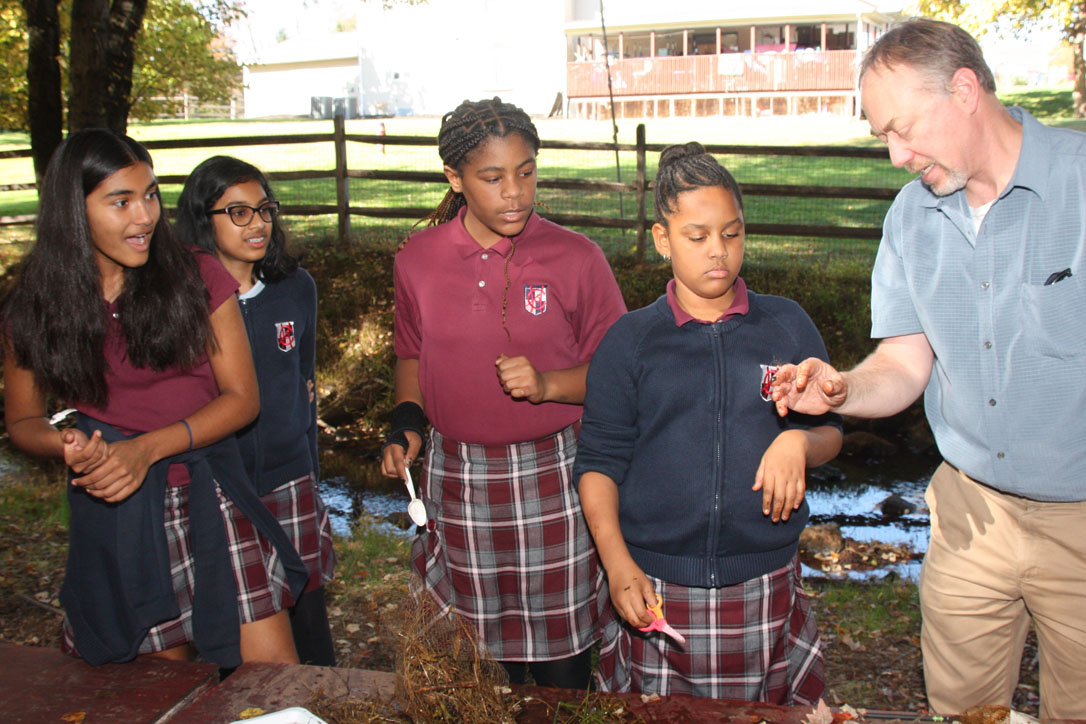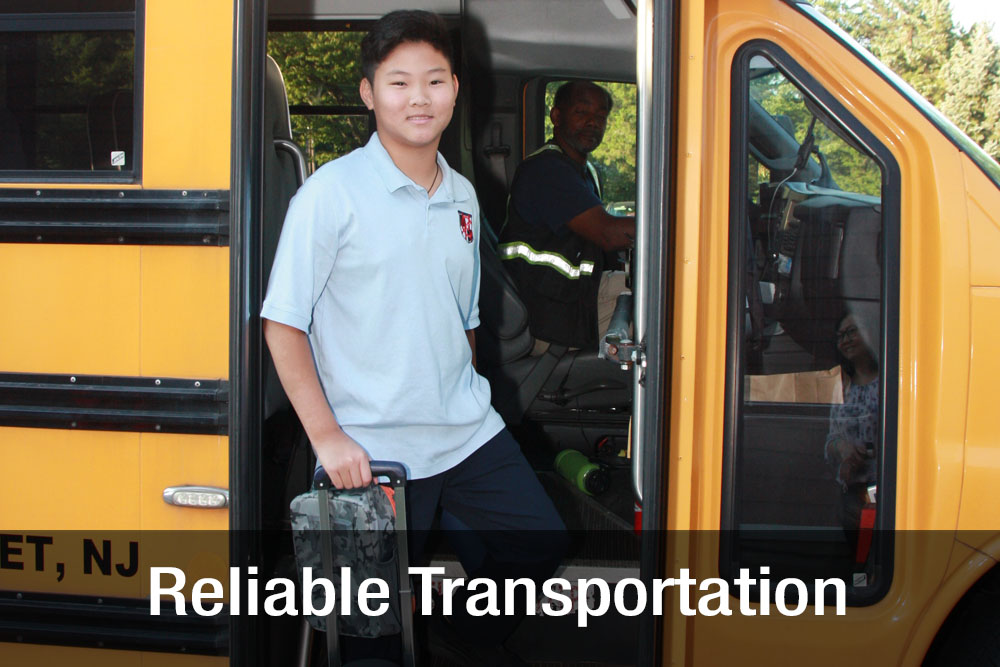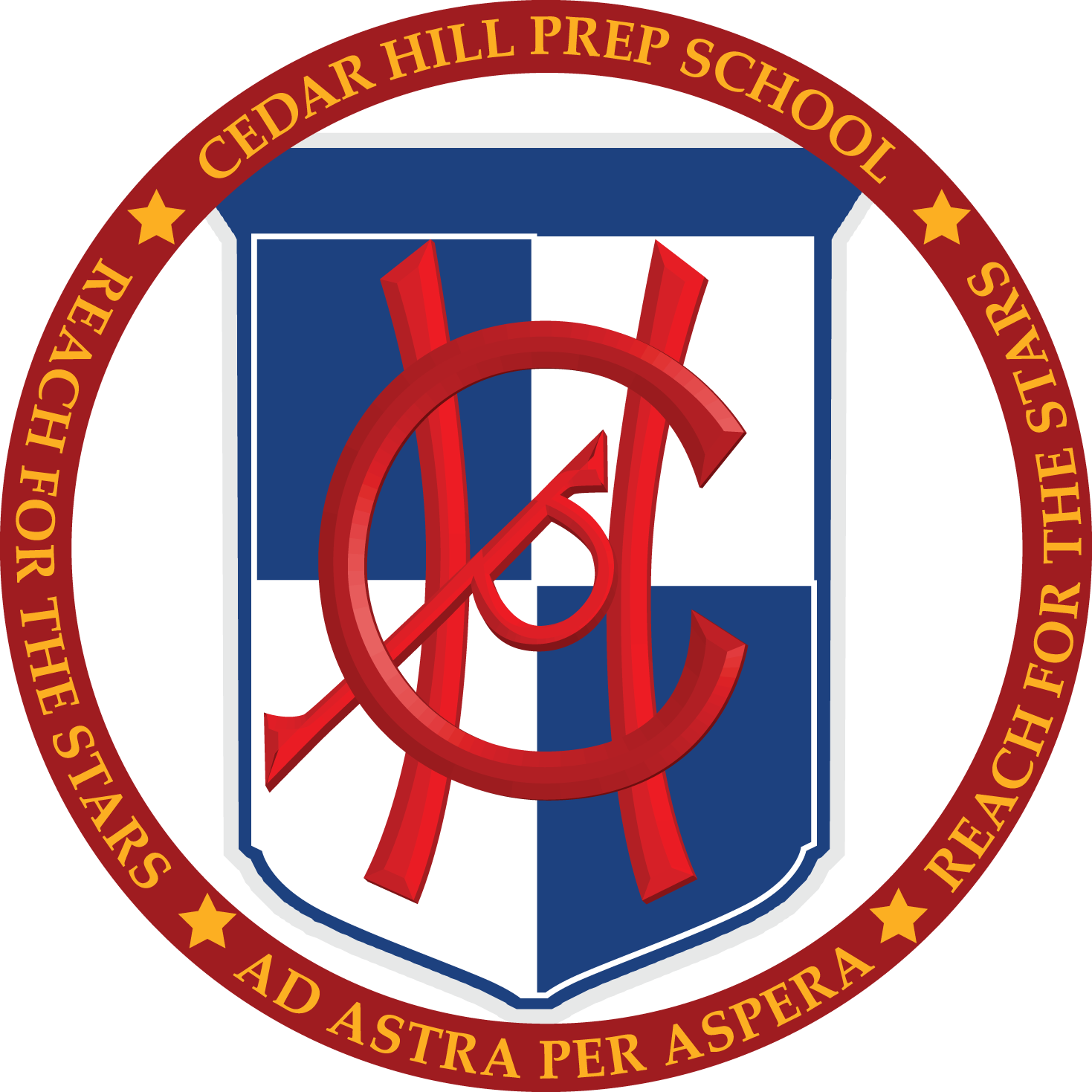Middle School
Physical Education
The goals of the physical education program are:
- Sportsmanship – students will continue to learn the meaning of sportsmanship, to be gracious in winning and losing and to respect their opponents and officials.
- Teamwork – students will learn to play as a team member, learn to work together towards a common goal and be composed & respectful at all times.
- Organized Sports – Students will begin to learn organized team sports. This includes but is not limited to, soccer, basketball, football, baseball, volleyball. Students will learn the rules of each game, the objectives and skill sets required to play the game.
- Diet, Nutrition and Exercise – Students will learn the importance of diet and nutrition as it pertains to sports, endurance, and well-being. Students will learn proper eating habits and exercise that are required to maintain a healthy, active lifestyle.
Physical Education In Preschool
Fundamental Movement Skills
- Balance.
- Locomotor Skills.
- Manipulative Skills.
Active Physical Play
- Active Participation.
- Cardiovascular Endurance.
- Muscular Strength, Muscular Endurance, and Flexibility.
Perceptual Motor Skills and Movement Concepts
- Develop and refine gross motor skills (hopping, galloping, jumping, running.
- Spatial Awareness.
- Body Awareness.
- Directional Awareness.
Physical Education in Junior Kindergarten/Kindergarten
Movement Education/Rhythm
- Basic Movement (walking, jogging, jumping).
- Pathways (straight, curved, zig-zag).
- Directions (forward, backward, sideways, up and down, diagonal).
- Ranges (near and far).
- Levels (high, medium, low)
Wellness
- Explain how decisions to be active can have a direct impact on feelings.
- Explain how participation in regular physical activity contributes to health and well-being.
- Identify safety rules used when participating in movement activities.
- Identify foods that promote a healthy lifestyle.
Manipulative Skills
- Develop spatial and coordination skills through movement and manipulative activities.
- Perform various movement/manipulative skills (kicking, striking) with appropriate control during skill practice.
- Identify body parts that are used to control objects during manipulative activities.
Movement/Locomotor/Non-locomotor Skills
- Develop and refine fine and stationary gross motor skills when in self-space.
- Demonstrate basic activity and safety rules when performing non-locomotor skills.
Cooperative Games
- Distinguish between offense and defense during game play.
- Explain what it means to display good sportsmanship.
- Demonstrate cooperative and competitive strategies in movement activities.
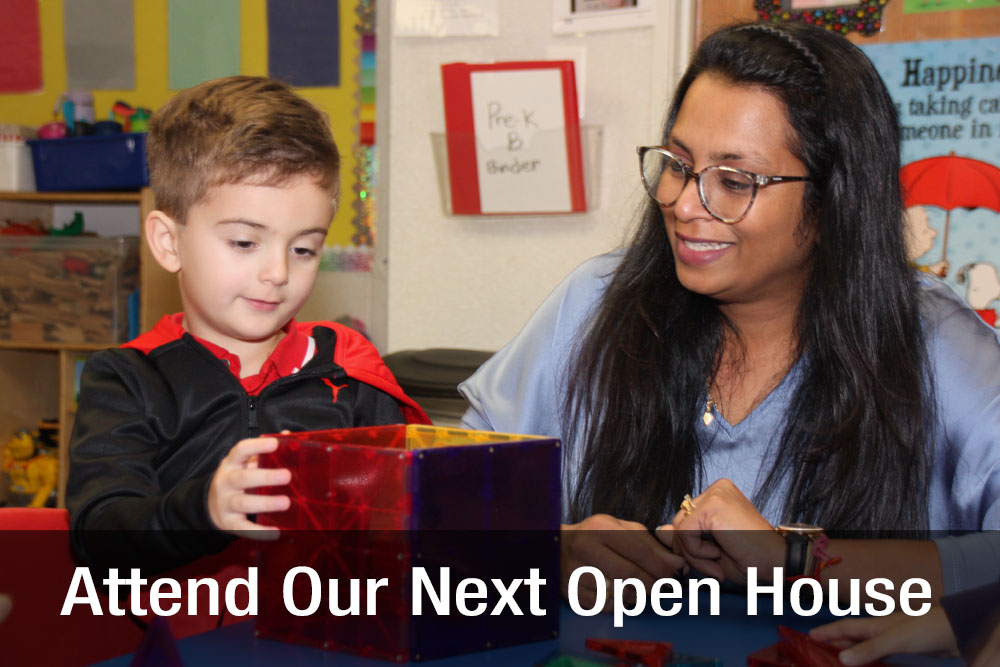
Discover how Cedar Hill Prep can help your child reach their unique potential. Our students are in the top 10 percentile in the United States and our educators are delighted to showcase our offerings. We are currently taking applications and processing enrollment.
2024-2025 School Calendar

Do you love blogs? Do you like hearing about best education practices and getting parenting tips to support your child’s learning path?
Our faculty and administrative team have an exciting year lined up. If you love blogs and would like to stay connected with our school community, you're in the right place! Look out for news and events that take place at our school right here on our very own blog site!


